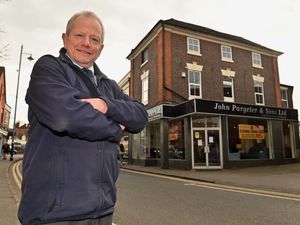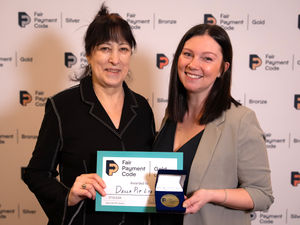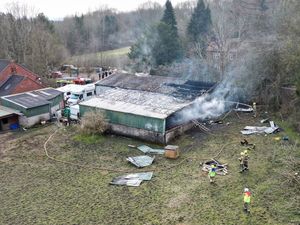City's economy is bouncing back
Birmingham is “on the precipice of exciting opportunities for economic growth” despite the impacts of Covid-19 and Brexit, according to a major economic report.
The Birmingham Economic Review, published by Greater Birmingham Chambers of Commerce and the University of Birmingham’s City-Region Economic Development Institute, reveals promising signs for recovery across the city-region even though well-documented challenges such as talent shortages and inequality remain.
The report reviews Birmingham’s economic landscape, before and during the pandemic, as well as what lies ahead for the region.
While the pandemic led to significant falls in output, productivity and employment, the report says Birmingham continues to be a draw for high-profile business moves and expansions.
The economy is bouncing back quicker than expected, with Greater Birmingham businesses reporting increased domestic and international demand.
More than half (52 per cent) of Greater Birmingham firms surveyed during the third quarter of the year reported an increase in UK sales and just 13 per cent recorded a fall in domestic activity.
Half reported an increase in advanced UK orders and 35 per cent experienced an increase in international sales.
As the UK strives to hit net zero targets, the Birmingham Economic Review also highlights significant opportunity for firms in Greater Birmingham to get involved in the low carbon supply chain through a suite of low and zero carbon activities taking place across the wider region.
Key opportunities include the shift towards electric vehicles, the decarbonisation of domestic heating and the region’s growing clean energy sector.
Henrietta Brealey, chief executive of the GBCC, said: “The data contained in this year’s Birmingham Economic Review – the fifth annual review of its kind - is perhaps the most important to date.
“Following the once in a lifetime social and economic shock precipitated by the coronavirus and subsequent restrictive measures, we are beginning to see positive signs of recovery at both local and national levels.
“While the impacts of Covid-19 and Brexit remain in play, the city stands on the precipice of exciting opportunities for economic growth.
“At the time of writing, it is now less than a year to go before the Birmingham 2022 Commonwealth Games, and the city has a unique opportunity to leverage the array of benefits that the once in a generation investment in HS2 and associated local developments will bring.
“Birmingham was on an upward trajectory prior to the pandemic and a lot of the good work done by businesses and stakeholders alike has set us up to come out of this crisis on a relatively surer footing.
“As a chamber, we are more committed than ever to rebuilding Birmingham and making it the best place to start, grow, move or invest in a business.”
Professor Simon Collinson, deputy pro-vice chancellor for regional engagement and director of WM REDI and City-REDI, University of Birmingham, said: “The pandemic has hit the UK economy harder than most other OECD countries and the West Midlands harder than most other UK regions.
“This economic shock, coupled with Brexit, led to significant falls in output, productivity and employment as well as new levels of inequality.
“Uncertainty remains, but the signs are remarkably promising. The range of indicators we track, presented in this report, show growth and optimism as part of a tentative bounce-back.
“As with any post-shock recovery, separating temporary responses in consumer spending, hybrid working, employment and wages, or firms’ investment decisions from longer-term behaviour changes, in market demand, the shape of our city-centres, work-place wages, automation and regional growth, is challenging. But it is key to a better understanding of the future growth prospects of the region.
“As we look ahead to regain our growth momentum we need to retain and attract the best talent and investment as a leading global city-region.
“But this new growth pathway will also need to be more sustainable and more inclusive than our trajectory in the pre-pandemic era.”





